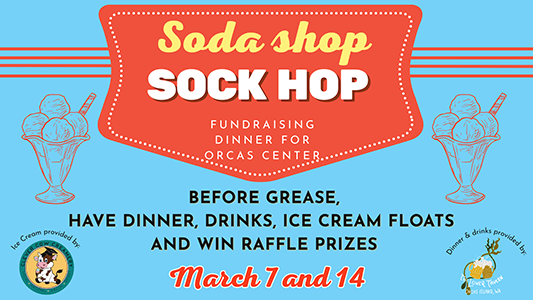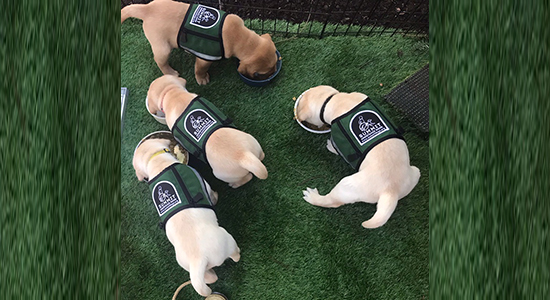||| FROM NPR.ORG |||
On a sleepy cul-de-sac amid the bucolic vineyards and grassy hills of California’s Sonoma Valley, a $4 million house has become the epicenter of a summer-long spat between angry neighbors and a new venture capital-backed startup buying up homes around the nation. The company is called Pacaso. It says it’s the fastest company in American history to achieve the “unicorn” status of a billion-dollar valuation — but its quarrels in wine country, one of the first regions where it’s begun operations, foreshadow business troubles ahead.
Brad Day and his wife, Holly Kulak, were first introduced to Pacaso in May after a romantic sunset dinner in their yard. “And we just saw this drone, coming up and over our backyard,” Day says. “And we’re like, what is that?”
Pacaso denies directing or paying a drone operator to film the neighborhood. But its website does have drone photos of the house in question, located at 1405 Old Winery Court. It says it bought the photos after the fact.
Nonetheless, after the drone incident, Day and Kulak got suspicious about what was going on in their neighborhood. About a week later, their neighbors told them they were moving and selling their house to a limited liability corporation, or LLC. But they were super vague about it.
Day and Kulak began speaking with other residents on their cul-de-sac. One of them, Nancy Gardner, had learned from a friend in nearby Napa Valley about a new company called Pacaso that was buying houses in the area. The company was co-founded by a Napa resident, and it converts houses into LLCs. Pacaso then sells shares of these corporate houses to multiple investors. Gardner Googled Pacaso, and, sure enough, the house on their cul-de-sac was on its website. The company had named the house “Chardonnay” and was now selling investors the chance to buy a one-eighth share of it for $606,000.
Pacaso is less than a year old
Pacaso was founded in October 2020 by Austin Allison and Spencer Rascoff, two former executives at Zillow. The company is based in San Francisco, and as is typical of tech startups in the Silicon Valley area, its founders tell a lofty story about their business that’s about more than just making money. The company says the motivation for the venture began when Allison and his wife, both based in Napa, bought a second home in Lake Tahoe. The night after they closed on the house, Allison says in a promotional video, he and his wife sat around a fire “thinking how appreciative we were to be second homeowners. And, from that moment, I’ve always been inspired about making the dream of second home ownership possible for more people.”
To make second home ownership possible for more people — and, of course, make money — Pacaso uses a “fractional home ownership” model. They buy a house, lightly refurbish it, furnish it and then create an LLC for it. They then divvy up ownership of this corporatized house into eight fractions and sell those shares on their website.
If you buy a share in a house, you’re able to stay in it 44 nights per year in increments that can’t exceed 14 consecutive days per visit. You can also “gift” these stays to friends or family. Pacaso offers an app to handle the logistics of booking stays. It oversees management, maintenance and cleaning of the property. In exchange for all this, it charges 12% of the home’s purchase price upfront and monthly fees going forward. If you buy a share in a house, you have to hold on to it for a year. After that, you can sell it and profit from any appreciation in the home’s value (or be on the hook for any depreciation).
The neighbors got together to oppose Pacaso
When Day, Kulak and their neighbors learned about Pacaso’s business model, they were appalled. They saw the venture capital-backed company as invading their community and converting their neighbor’s house into a revolving carousel of vacationers. They imagined endless parties, noise and cars overflowing their cul-de-sac. They worried those staying at “Chardonnay” would drive too fast and fail to heed local concerns about wildfires and droughts. But, most of all, they feared the Pacaso house and more like it would destroy their sense of community and turn their neighborhood into an “adult Disneyland.”
The county, Day says, had designated their neighborhood an “exclusion zone,” which bans Airbnb-style, short-term rentals to preserve the “residential character” of communities. But Pacaso argues that its clients are not short-term renters. They are co-owners of an LLC. This also means they don’t have to pay the typical taxes on short-term rentals. Likewise, in the nearby town of St. Helena, Pacaso was trying to circumnavigate a city ban against timeshares with the same argument. Day says he and his neighbors saw Pacaso’s newfangled business model as nothing more than a “glorified timeshare” with a legal strategy aimed at “skirting regulations that are designed to keep communities intact.”
The cul-de-sac sprang into action. It formed an organization called Sonomans Together Opposing Pacaso, which, not coincidentally, has the acronym STOP. It contacted the county Board of Supervisors. It created an anti-Pacaso website and circulated an online petition. It flooded the local newspaper with op-eds and letters to the editor. It lobbied local real estate agents not to work with Pacaso. “It feels like we’re waging a war by land, air and sea,” Day says.
Protest signs festoon the neighborhood’s lawns, fences and cars. They say things such as “Stop Pacaso” and “Not here, Pacaso!” Day’s favorite sign reads, “The Pacaso house is the big one on the right with no soul.”
Customers are still buying shares in Pacaso’s homes despite protest signs
The signs, of course, make the prospect of buying a share in the Pacaso house awkward, to say the least. Alfred Miller, however, bought a share in “Chardonnay” before ever seeing it in person. Miller is a risk management consultant based in Los Angeles. He believes in Pacaso’s business model. And he likes wine and Sonoma’s climate. As he researched “Chardonnay” online, he liked the modern architecture and pool, and he decided he’d buy a one-eighth share of the house. It wasn’t until a couple weeks after he made the purchase that he first drove up to Sonoma and witnessed the spectacle around his new investment.
“So, imagine me as a new owner driving up, and I get to the corner of Old Winery Court,” Miller says. “There’s a full-on, professionally printed sign that says ‘No Pacaso.’ ” Miller then turned right onto Old Winery Court “and the more I drive into the neighborhood, the more signs I see. Brad Day has three vehicles in front of his house, and each vehicle has an anti-Pacaso sign on it. I pull into the driveway — there are two signs on each side of the property. I mean, it was not what I would call very welcoming.”
READ FULL ARTICLE: www.npr.org/sections/money/2021/08/24/1030151330/a-unicorn-startup-is-turning-houses-into-corporations
**If you are reading theOrcasonian for free, thank your fellow islanders. If you would like to support theOrcasonian CLICK HERE to set your modestly-priced, voluntary subscription. Otherwise, no worries; we’re happy to share with you.**









There is absolutely nothing new about fractional ownership of vacation houses. 30 years ago it was very popular among my co-workers. It’s how middle class people afford a vacation home.
Whether it’s new or not is aside from the point. Nobody wants to live next to a venture capital-backed company’s investment that is converting their neighborhood into a revolving carousal of vacationers. This is a business model (not unlike vacation rentals, and timeshares), that drives up real estate prices, one in which a few get rich at the expense of the community.
The full article at NPR is an interesting and worthwhile read. It notes that Timeshares are not only not profitable for investors, but are already illegal in many communities. The legality of the Pacaso corporate model is currently being tested in the courts. (It is also interesting that the NPR story carries a sponsorship ad by VRBO).
Why not use the land grant money to purchase every VR permitted house that comes to the market and then resell those homes to people in need at a steep discount in price with a provision that no rental will ever be allowed in perpetuity? You could also pass a rule that no corporation can own any home and force all houses to be in the name of a sole individual or couple. Lots of ways to get creative to diminish the population and get rid of those you don’t want and prevent outsiders from coming. But of course enacting these things takes effort and it’s just so much easier (and more fun?) to post hateful and negative things here instead of fixing the problem. I think the Orasonian should just make a permanent column for VR bashing and leave it running continuously.
This could easily happen here, and maybe it has already. Another way to drive up the average sale price of houses, which have increased by something like 15 percent in the past year. The Web has allowed the globalization of home ownership — or occupancy — and the consequent deterioration of local community.
I also like the idea of VR “exclusion zones” mentioned in the article and adopted in Sonoma County. Why not here? Shaw and Waldron Islands are already in this category — as is Friday Harbor, I believe.